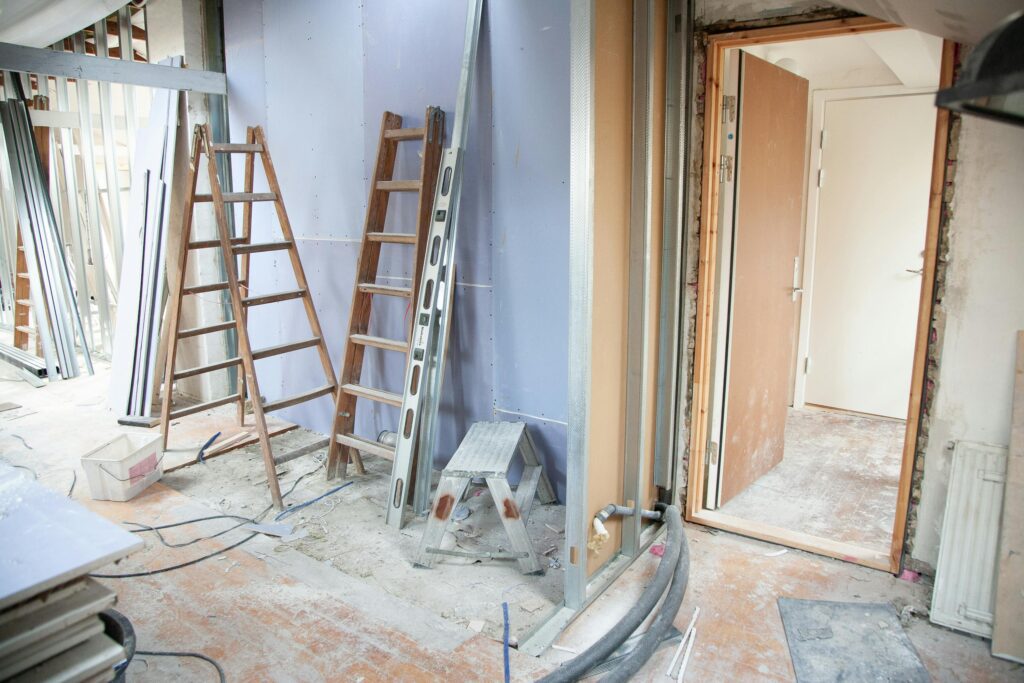When it comes to improving your home, having an expert on board can make all the difference. Remodeling contractors aren’t just here to swing hammers—they bring years of experience, practical advice, and even some tried-and-true tricks that save time and money. Here are some expert tips to make your project a success from start to finish.
Planning Your Remodeling Project
The planning stage is where dreams meet reality, and a little prep goes a long way.
- Setting Realistic Goals and Budgets: Start by getting real about what you want to achieve. Are you looking for a big change, or are you working with a small budget? Set clear goals and keep them handy. A solid budget, with a little extra set aside for surprises, keeps you on track. Many remodeling contractors recommend an extra 15-20% cushion—just in case.
- Prioritizing Projects for Maximum Impact: Not every project gives the same bang for your buck. Kitchens and bathrooms often bring the best return on investment, so if you’re wondering where to start, try focusing on these areas first.
- Understanding the Scope of Work: Knowing what each project entails helps keep things realistic. Talk with your contractor about the full scope so you know what to expect along the way. This way, there are fewer surprises—and if there’s one thing homeowners love, it’s avoiding unexpected hiccups.
Choosing the Right Remodeling Contractor

Finding the right contractor can feel a bit like dating—you want someone experienced, reliable, and, most importantly, who understands your vision.
Qualities to Look For
A good contractor should be licensed, insured, and open about their past projects. Take a look at their portfolio to see if their style matches yours. Think of it this way: if they’ve handled projects similar to yours (whether it’s a custom home renovation or kitchen remodel), you’re off to a great start.
Checking Credentials and References
Never hesitate to ask for references. A solid contractor won’t mind sharing a few client contacts. Reaching out to past clients gives you the inside scoop—did the contractor deliver on time? Did they stick to the budget?
Clear Communication is Key
Communication is one of the most underrated parts of a successful remodel. Your contractor should be easy to reach, willing to listen, and able to explain things clearly. There’s nothing worse than being left in the dark about your own project.
Kitchen Remodeling Insights
Kitchens are the heart of the home. A good remodel makes it not just beautiful, but functional, too.
Layout Optimization
Think about how you use your kitchen. The “work triangle” (sink, stove, fridge) helps with efficiency, but it’s not the only layout. Open concepts are great for family spaces, while more closed setups might suit serious cooks who need everything within reach.
Material Selection
Durable materials are worth the investment. Quartz countertops? They’re tough and look great, handling everything from hot pans to messy spills. For backsplashes, subway tiles or mosaic tiles add style without sacrificing practicality.
Energy-Efficient Appliances
Energy-efficient appliances save money and add value to your home. Look for the Energy Star label to find eco-friendly options that keep your bills in check and reduce your carbon footprint.
Bathroom Renovation Advice
Bathrooms can be tricky to renovate but done right, they’re a game-changer. Here are some essentials for a successful bathroom remodel.
- Making the Most of Small Spaces: For smaller bathrooms, every inch matters. Wall-mounted vanities and compact storage solutions can make even the tiniest bathroom feel more spacious.
- Waterproofing and Ventilation: Bathrooms see a lot of moisture, so waterproofing is a must. Good ventilation prevents mold and mildew, keeping your bathroom fresh and safe.
- Popular Bathroom Trends: Matte black and brass fixtures are in style and add a modern touch. Subway tiles or large-format tiles make for a classic yet contemporary look, perfect for any bathroom.
Living Space Transformation
Transforming your living space can breathe new life into your home. Here’s what contractors recommend:
- Non-Traditional Layouts: Open concepts create a larger, more social space, but traditional layouts with defined rooms offer coziness and privacy. Think about your lifestyle and what would work best for you.
- Making Smart Flooring Choices: One of our recent projects really drove home the importance of choosing the right flooring. We had clients – a family with two active kids and a dog – who were set on traditional hardwood throughout their first floor. After showing them how their lifestyle might impact the floors, they opted for high-end luxury vinyl in the family room while keeping hardwood in the dining room.
- The Right Light Makes All the Difference: Lighting is one of those elements that can make or break a space, and we’ve learned this lesson time and again. One good idea would be to design three distinct layers of lighting: recessed fixtures for overall illumination, under-cabinet LEDs for food prep areas, and pendant lights over the island for both task lighting and visual interest.
Layout and Space Optimization
Exterior Updates That Matter
Curb appeal isn’t just about aesthetics – it’s about protecting your investment while making your home more welcoming. We recently completed an exterior renovation that perfectly illustrates this point. Rather than just replacing the worn siding, we took the opportunity to upgrade the insulation, install quality gutters, and add architectural details around the windows. The result? Not only does the house look substantially better, but the owners reported a noticeable difference in their energy bills. Sometimes the most impactful improvements are the ones that combine form and function.
Roofing and Siding
Roofing and siding protect your home from the weather and can even improve insulation. Go for materials that fit your climate to ensure durability.
Outdoor Living Spaces
An outdoor space extends your living area. Think about adding a deck, patio, or even an outdoor kitchen to create a place for relaxation and entertaining.
Energy Efficiency Upgrades
Improving energy efficiency is great for the environment and can save you money in the long run.
- Insulation: Insulation keeps your home comfortable year-round. Adding or upgrading insulation in the attic and walls can help reduce heating and cooling costs.
- Windows and Doors: Drafty windows and doors let air out (and money with it). Replacing them with energy-efficient models keeps your home cozy and cuts down on utility bills.
Permits and Regulations
Most of the time, permits are a hassle, but they’re necessary when you want to do some remodeling. Here’s what you need to know:
- Local Building Codes: Building codes vary by location, so make sure you understand what’s needed. Contractors usually handle this part, making sure everything is up to code.
- When Permits Are Necessary: Structural changes, electrical work, and plumbing usually require permits. It’s always better to be safe than sorry, so double-check with your local building department.
What Your Mind Can Conceive; DC Homes Can Achieve
Your home will never be more perfect than it is in your dreams, but with the right planning and the right team, you can achieve close to what you envision. Yes, there will be dust. Yes, something unexpected will probably come up. But at the end of the day, transforming homes isn’t just our job – it’s our passion!Fill out our online form and get a free quotation from us. You’ll be happy you did.
Give Us A Call




